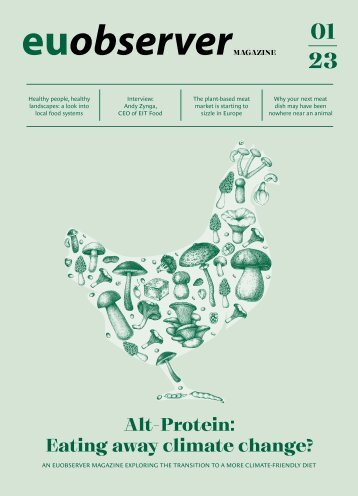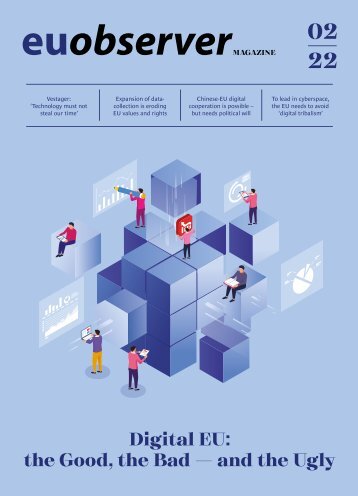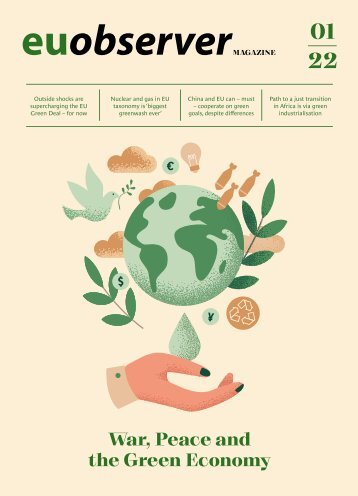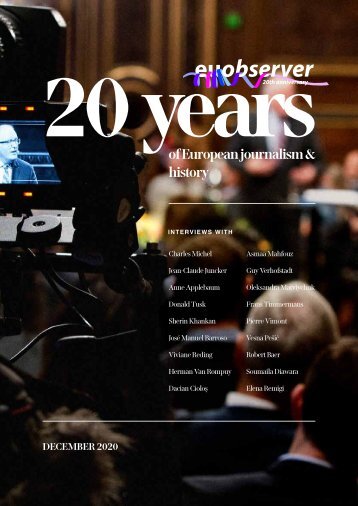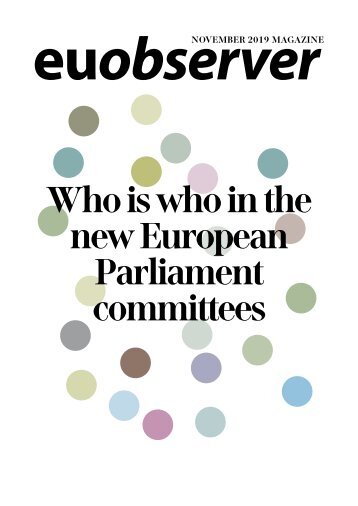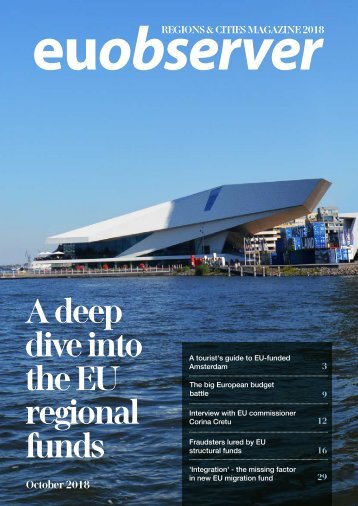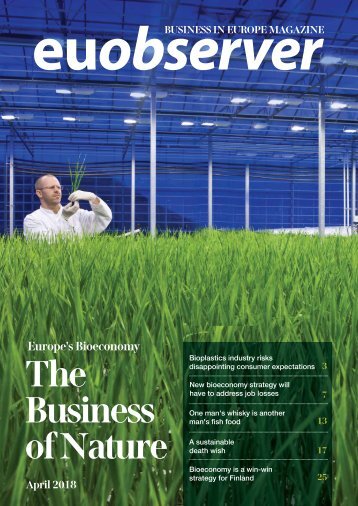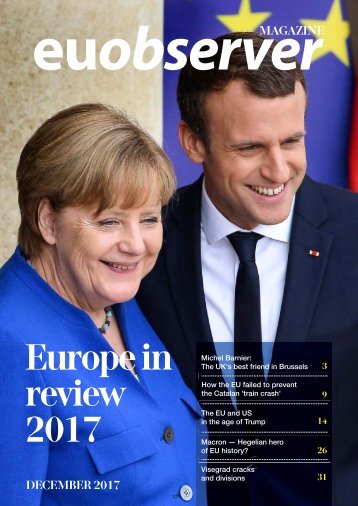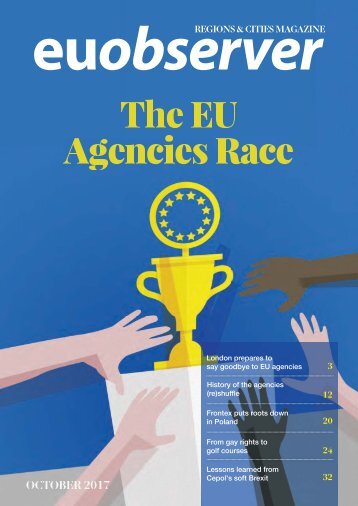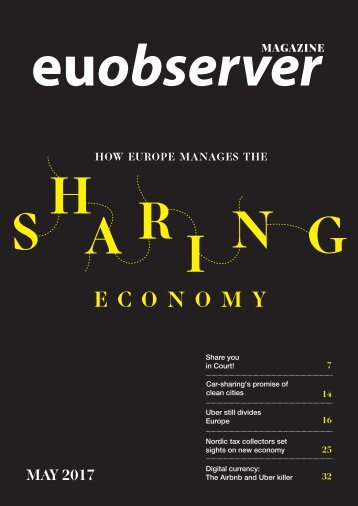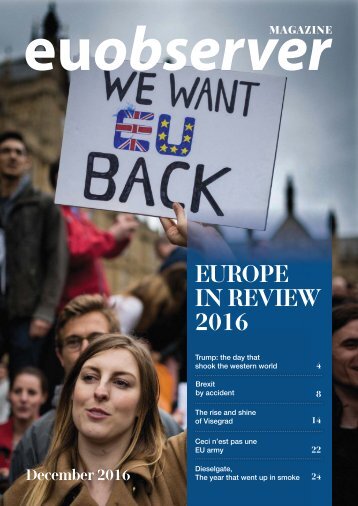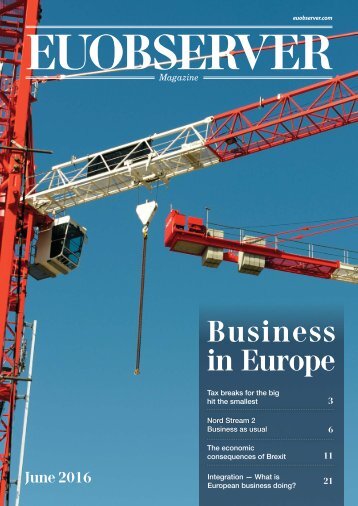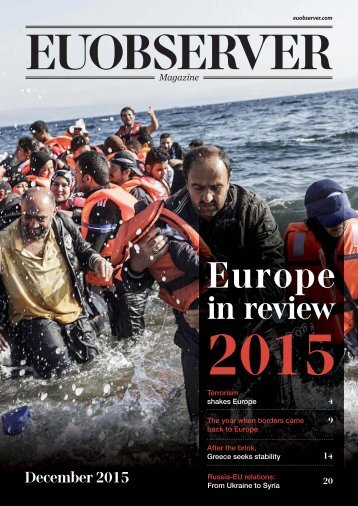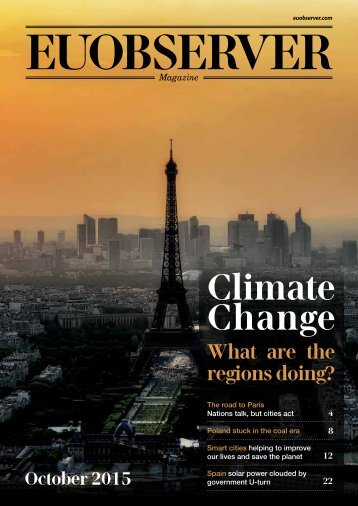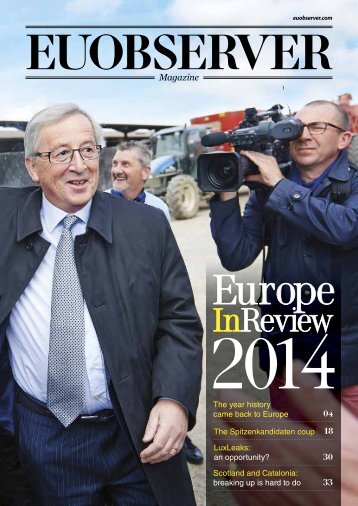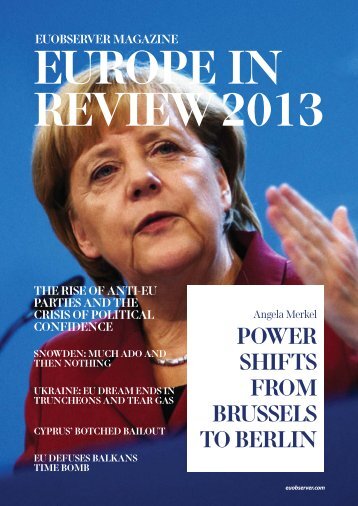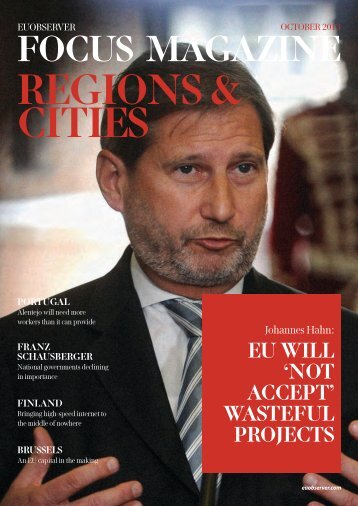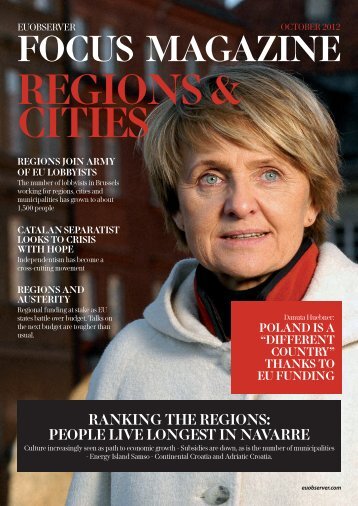Health in a post-pandemic EU
- Text
- Vaccines
- Health
- European
- Pandemic
- Diseases
- Healthcare
- Obesity
- Mrna
- Pharmaceutical
- Medicines
PRESCRIBING OUR WAY OUT:
PRESCRIBING OUR WAY OUT: THE EU’S FIGHT AGAINST ANTIMICROBIAL RESISTANCE HEALTH IN A POST-PANDEMIC EU several countries are only just starting on their roadmap to implement effective interventions to tackle AMR. The coronavirus pandemic provided Europe with a wake up call, said Weiss, adding that the pandemic highlighted just how vulnerable citizens with health complications become when AMR national plans aren’t functioning optimally. Is it time for the EU to step in and take over? Weiss is optimistic and thinks that it’s still a matter of national competencies. “I am a true believer of the member states as the best authority to have the responsibility for almost everything related to healthcare,” Weiss said in an interview with EUobserver. Setting a deadline and threatening to take away a country’s authority isn’t an option, according to the MEP. She says the member states know what they have to do and that there are member states that can help others improve. Working together Countries aren’t completely left to their own devices. The ECDC has been visiting member states to discuss AMR issues since 2006. While a country’s efforts against AMR are assessed, the purpose of these visits is also to provide any assistance and exchange of knowledge that a state could benefit from. I am a true believer of the member states as the best authority to have the responsibility for almost everything related to healthcare.” Pernille Weiss As of 2017, the country visits have been conducted jointly with DG SANTE to also consider the animal health and environmental aspects of AMR (the One Health approach) which are not covered by the ECDC’s mandate. A spokesperson for the ECDC told EUobserver that they performed three One Health country visits on AMR in 2019. No visits were carried out between 2020 and 2021 due to the COVID-19 pandemic. Since then, one country visit was carried out in 2022 with another planned for the last quarter of 2023. The ECDC did not study the most common issues among member states but the results of a 2022 study on what barriers countries are facing to effectively implement their AMR policies “should soon be available” the spokesperson said. A ‘silent pandemic’ A new set of assessments is scheduled to start in 2024 as part of the implementation of EU Regulation 2022/2371 which was adopted with the aim of creating a stronger EU health security framework. By the end of 2026, all EU/EEA countries should have each received at least one visit. “These country assessments will be conducted as country visits and will include a substantial part covering AMR, healthcare-associated infections, and infection prevention and control, with corresponding indicators. The methodology is under development, including for the AMR-related areas,” the ECDC spokesperson said. Health First Europe, an alliance of patients, professionals, and the industry, finds that policymakers are becoming more aware of the threat of AMR. However, a spokesperson for Health First Europe described the situation as a “silent pandemic that is still too silent.” Asked about what its AMR Patient Group thinks about the robustness of the current national action plans in place, the spokesperson said they don’t comment on policies. “We see our objective in raising awareness on AMR. We don’t take positions on policies. In our recommendations to policy-makers, which are part of our declaration, we demand clear actions by policy-makers to tackle the issue,” the spokesperson for Health First Europe said. Fighting AMR Health First Europe has three main proposals for the EU to strengthen its fight against AMR. These involve increasing awareness among patients and healthcare professionals, improving infection prevention and control measures, and investing in and promoting the use of medical technologies. An emphasis on education has long been part of the global fight against AMR. Despite this, countries still struggle to con- vey some of the most basic facts about this pressing health issue to their citizens. Nearly two out of five (39%) respondents in the EU incorrectly think that antibiotics kill viruses, and more than one in ten (11%) indicate they do not know if they’re effective against viruses. To address these knowledge gaps, what more can the EU do now that it hasn’t already done in the past? Weiss says the focus should be on educating both members of the public and healthcare professionals. “I’m 55 so I was lucky to have learned the old-fashioned principles of hygiene in school. But we’ve lost a couple of generations where hygiene has not been part of the curriculum in schools,” says Weiss. Wash your hands It sounds like a simple measure but promoting hand hygiene and better hygiene in hospitals can more than halve a patient’s risk of death due to AMR. Before entering politics, Weiss was a homecare nurse. Today she sees a number of nurses jumping to conclusions that a certain infection needs to be treated by antibiotics. The MEP suggests that the EU should invest more in rapid test technologies that can help healthcare practitioners when they’re at a patient’s bedside to determine the best treatment plan. “This would allow health care professionals to only use antibiotics when there’s nothing else they can do better, cheaper, or in a way that doesn’t create this resistance threat,” she adds. While there is a consensus that all these measures are useful, it still remains critical to ensure timely access to both new and existing antibiotics. It can take 10-15 years and around €1 billion to develop a new antibiotic. Luckily, with advancements in the field of generative AI, the time and money required may be reduced. “The key to a successful fight is cooperation. Every group, including pharmaceutical, medtech, policy-makers or HCPs are part of the solution and we see fruitful discussions,” said a spokesperson for Health First Europe. Involving pharma Weiss seems to agree saying that the pharmaceutical industry has been very proactive and wants to be part of the solution. The European Observatory on Health Systems and Policies said in a report that the EU has a major role to play by supporting antibiotic research and development saying that increased and coordinated funding at the EU level can support both push (e.g. grants and tax incentives) and pull (e.g. accelerated approval and liability protection) incentives. The European Commission wants to introduce a system of transferable exclusivity vouchers to reward the development of novel antimicrobial products. These vouchers can be used to extend the time a more profitable drug from a company retains its market exclusivity. Led by the Netherlands, 14 EU states came out strongly against this controversial proposal. While acknowledging that the current system of incentives had failed and that new ideas were required, they said such vouchers don’t directly incentivise the creation of new antibiotics and will actually stifle innovation. One of their proposals is for direct financial incentives, such as the introduction of market entry rewards for companies that bring a product to the market. Overcoming the threat of AMR will require a multidisciplinary approach. For a solution to be truly effective, the approach will also need to be a global one. Herein lies an opportunity for the EU. “We could make the EU world champions in combating antimicrobial resistance. Because if we can make it in the single market where people, food, and animals can cross borders without increasing AMR, then the rest of the world can of course also learn from Europe,” Weiss believes. • About Christoph Schwaiger Christoph Schwaiger is a freelance journalist based in the Netherlands. He mainly focuses on health, technology, and current affairs stories. 41
- Page 1 and 2: MAGAZINE 02 23 A ‘cure’ for obe
- Page 4: TABLE OF CONTENTS HEALTH IN A POST-
- Page 8: A ‘CURE’ FOR OBESITY HEALTH IN
- Page 12: WHO CARES? HEALTH IN A POST-PANDEMI
- Page 16: HEALTH IN A POST-PANDEMIC EU Stakeh
- Page 20: HEALTH IN A POST-PANDEMIC EU Rare n
- Page 24: Stakeholder Article The looming thr
- Page 28: “IT’S NOT JUST ABOUT SLOGANS”
- Page 32: Keeping an eye on AIpowered drugs T
- Page 36: HEALTH IN A POST-PANDEMIC EU After
- Page 42: Support truly independent European
Inappropriate
Loading...
Mail this publication
Loading...
Embed
Loading...

